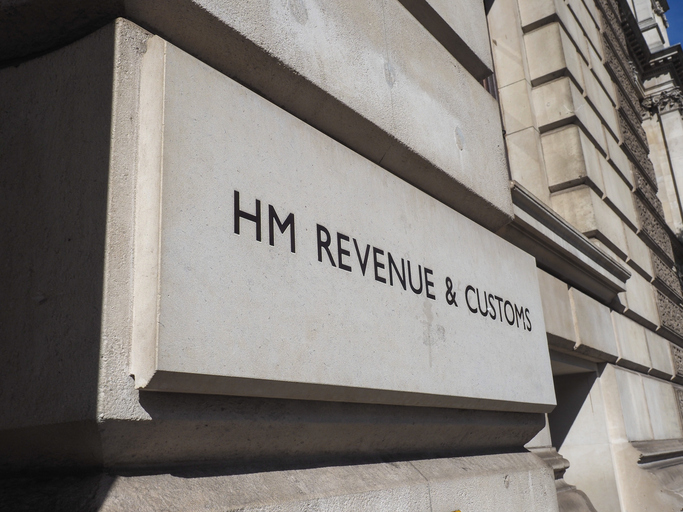Wary Swiss Banks Shun Yanks
By ANITA GREIL
When Scott Schmith finally got his Swiss passport last month, it was time for him to take a drastic step: hand back his American one.
Among the reasons was a pending U.S. regulation aimed at tracking down tax cheats that is making life difficult for some Americans abroad. These expatriates say that foreign banks, which have expressed concern about compliance costs and potential penalties for failing to report on their American clients, are turning away their business.
The new law, expected to be phased in over several years, requires foreign banks to identify Americans among their clients and to provide their financial information to the Internal Revenue Service. Just one person overlooked could mean a penalty equivalent to 30% of a bank’s U.S. income.
The measure, known as the Foreign Account Tax Compliance Act, or Fatca, applies globally. Swiss banks are particularly nervous. The U.S. has alleged that 11 Swiss banks helped Americans avoid paying taxes.
Most banks in Switzerland have little appetite to deal with such risk and are quietly—or openly—ushering American clients out or limiting the range of products offered to them, tax experts and bankers say.
“It was the straw that broke the camel’s back,” says Mr. Schmith of the consequences of the Fatca regulation. In June, the 50-year-old photographer received a certified letter from Swissbankers Prepaid Services saying the firm was terminating the relationship because of his American citizenship. The company, which is owned by several Swiss banks, asked Mr. Schmith for an address to send his account balance.
Thomas Beck, chief executive of Swissbankers, confirms that the company canceled accounts with U.S. clients because of the administrative costs of complying with the law for the relatively small number and sizes of accounts.
“Two months later, I got my Swiss citizenship, and I decided to renounce,” says Mr. Schmith. “I have nothing to hide, but my heart is here, my business is here, and my life is here.” On October 9, he went to the U.S. embassy in Bern and gave back his passport.
Banks world-wide have largely accepted the inevitability of Fatca, but they remain concerned about the complexity of the new rules, the difficulties and costs associated with ensuring compliance and the fact that important details aren’t clear yet even though some rules related to the law take effect next year.
“The identification of clients alone is major challenge. It often isn’t immediately clear if a client is married to a U.S. citizen, has dual citizenship or if he is a green-card holder,” says a spokeswoman for the Swiss Bankers Association, a lobbying group for Swiss banks.
The group has been working closely with the European Banking Federation, Institute of International Bankers and British Bankers’ Association to raise common concerns directly with the IRS and the U.S. Treasury Department, the spokeswoman adds.
The IRS and Treasury declined to comment.
An aide to Sen. Max Baucus (D., Mont.), the Senate Finance Committee chairman who sponsored the 2009 bill, says, “Foreign tax evasion is a drain on the federal budget worth tens of billions of dollars, and it puts an unfair burden on law-abiding American taxpayers to fill that gap.”
To be sure, Americans aren’t absolved of their tax obligations if they renounce their citizenship.
For the renunciation to become official, the taxpayer has to certify that he or she has been in full tax compliance for five years and perhaps pay an exit tax. If a taxpayer lies, the IRS can declare the expatriation invalid and proceed against him or her, according to Scott Michel, an attorney with Caplin & Drysdale in Washington. “In practice, people shouldn’t assume they’ll never have to deal with the U.S. again,” he says.
But retaining U.S. citizenship increasingly comes with its own complications for expatriates.
Jackie Bugnion, a tax expert at Geneva-based American Citizens Abroad, a lobby organization for Americans who live overseas, says she gets reports almost daily from U.S. citizens who are facing growing difficulty finding a bank willing to do business with them.
One of those Americans is John E. Roudabush, 37, who works for a U.S. medical-device company in Montreux, Switzerland, and is married to a French woman.
This summer, the couple wanted to buy a home and started looking for a mortgage. Credit Suisse, where the couple banks, turned them down, as did other Swiss banks, “though only a few openly cited my U.S. citizenship as the reason,” Mr. Roudabush says.
Credit Suisse AG says it doesn’t comment on individual clients. In general, the Swiss bank “is willing to maintain relationships with clients who are U.S. nationals, provided that such clients are in compliance with their U.S. tax and reporting obligations,” said a spokesman. This includes offering mortgages to Swiss-based U.S. citizens, he adds.
Postfinance, a big retail bank, also turned down Mr. Roudabush. A spokesman for Postfinance confirms that the bank is stopping offering mortgages to Americans who aren’t already clients. As compliance with U.S. regulations gets “evermore elaborate, it’s simply not economical to maintain a team of experts to ensure compliance for the few American clients that we have,” the spokesman says.
Walliser Kantonalbank also declined to offer Mr. Roudabush a mortgage. It is no longer doing business with Americans, a spokesman says, “because the high costs stemming from implementing additional controls and ensuring compliance just don’t make sense for us.”
Mr. Roudabush and his wife eventually found a French bank willing to do business with them, thanks to her French citizenship. He is still frustrated by additional U.S. tax-filing requirements under the new law and the difficulties getting access to banking services. Because he is entitled to become a French citizen, he says he is “seriously considering” giving up his American passport.
In Switzerland, banks are scouring their client lists and dividing clients into Americans, possible Americans and those who aren’t, according to Thomas Brotzer, a Zurich-based tax partner at Ernst & Young. Those who fall into the first two categories stand a good chance of receiving a letter from their bank, asking them politely to take their business elsewhere, Mr. Brotzer says.
A handful of banks that includes UBS AG, Vontobel Holding AG of Zurich and Geneva-based private bank Pictet & Cie are capitalizing on the plight of Americans living overseas, Mr. Brotzer says. They have registered subsidiaries with the U.S. Securities and Exchange Commission specifically to offer investment services to American clients who live outside the U.S., though such services are offered only to very wealthy clients.
“If you are an ordinary retail client with an average income and wealth, you are in trouble,” he says.
Latest News & Insights
October 16, 2024




